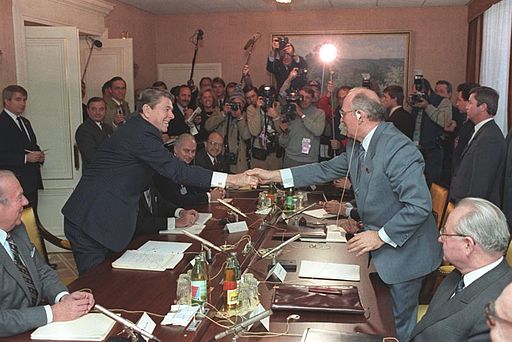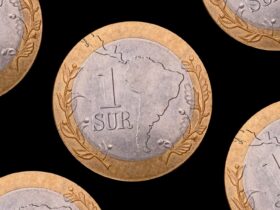The Obama-Castro handshake at Nelson Mandela’s Johannesburg memorial signified no shift in relations between the U.S. and Cuba. It was merely a handshake.
On December 5th, a chilling announcement made by South African President Jacob Zuma was quickly heard worldwide: Nelson Mandela (95 years old) had died.
The former revolutionary in the movement against South Africa’s National Party’s apartheid regime, and later President of South Africa left behind a legacy that will likely remain unparalleled by other world leaders for some time to come. While some mourned the loss of the Nobel Peace Prize-winning global icon who committed his life to peace, compassion and forgiveness, others snubbed the passing of a coldblooded ‘communist’ murderer who was imprisoned for 28 years and was considered a ‘terrorist’ by the United States until only five years because of his anti-apartheid involvement.
Regardless of whether you’re on the cheering side or on the jeering side, the fact stands that Mandela’s leadership had a global impact making him one of the most influential world leaders to date. But it seems that even in light of his recent death, our own leaders cannot look beyond partisan divides and quarreling. Consider the Obama-Castro handshake at the memorial; a civil and brief greeting between the two leaders led right-wing conservatives to label the gesture as despicable, traitorous conductwhile liberals dubbed it a thawing of tensions.
Despite the geographic proximity, the United States maintains a distant relationship with Cuba having severed diplomatic relations over fifty years ago when Raul’s brother Fidel assumed power. Contrary to the imagination of those lambasting the handshake, there was no political game at play – the handshake was merely a handshake. Period. What else was Obama supposed to do? Completely ignore Castro’s presence and rebuke him? It was appropriate for Obama to shake hands with another world leader while attending the memorial of the world’s greatest symbol for peace.
In spite of being raised by their parents to always shake hands when meeting or greeting someone, Republicans felt the urge to immediately slap a partisan sticker on the situation. Senator John McCain even likened the handshake to that between British Prime Minister Neville Chamberlain and German Third Reich leader Adolf Hitler in the lead up to WWII – a completely inappropriate and exaggerated analogy. McCain even dared to note that the leader of the freest country in the world has no business shaking the bloodstained hand of a ruthless oppressor who is “keeping Americans in prison.” Well, Senator, there are just two minor faults in your statements. First, have you ever heard of the Gitmo? Second, may we remind you that you not only shook hands with, but also spent a ‘late evening’ with, the late dictator Muammar Gaddafi at his ranch in Libya. You then tweetedabout it. Apparently Obama’s courteous handshake with Castro was more deserving of condemnation than McCain’s play-date with Gaddafi.

Let’s consider three more historic presidential handshakes with other less tans savory leaders. The handshake between British Prime Minster Winston Churchill, U.S. President Harry Truman and Soviet Communist Party General Secretary Joseph Stalin at the 1945 Potsdam Conference was designed to symbolize that communist and non-communist interests could be set aside in the wake of Nazi Germany’s collapse. The image was supposed to capture an alliance determined to move forward.

And then there’s the Reagan-Gorbachev handshake. In 1998 at St. Catherine’s Hall at the Kremlin, President Ronald Reagan shook hands with Soviet leader Mikhail Gorbachev before their final summit meeting. The planned handshake symbolized the first meeting between the U.S. and USSR in six years and marked the start of a thawing in bilateral relations.

All three of these handshakes between American Presidents and foreign strongmen were carefully constructed to convey a specific message in a specific context. On the contrary, Obama’s handshake with Castro was unplanned; it was simply a display of courtesy and nothing more. There was no predetermined plan for the two to encounter each other and shake hands in front of the camera and we are unlikely to witness any change in bilateral relations with Cuba. In fact, it would have been extremely inappropriate had Obama not greeted Castro at Mandela’s memorial; Obama shook hands with each leader he encountered which was the appropriate, civil thing for a world leader to do while honoring a man who stood for peace and compassion. It is inappropriate for certain individuals in the media and Congress to be spinning the memorial of the South African leader into a groundless and ludicrous controversy over a non-event between two men with hands. Those shouting at the gesture need to get a handle on the broader message before us all, that being Mandela’s legacy.









